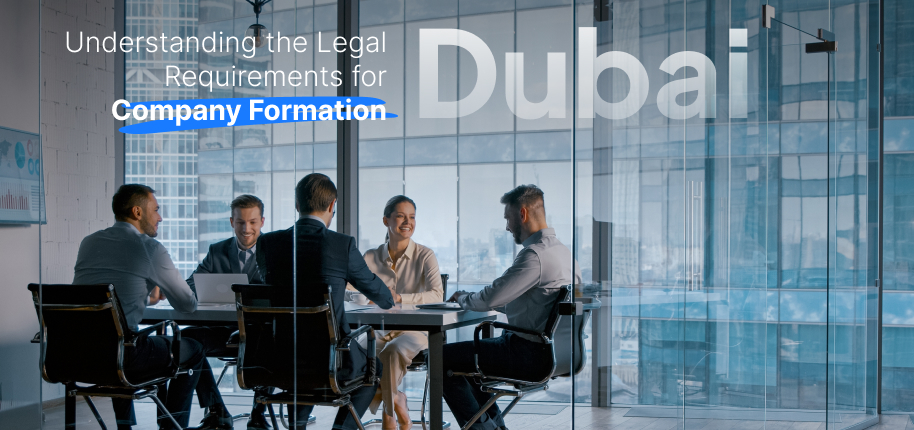Setting up a business in Dubai is a strategic move for entrepreneurs, startups, and multinational corporations alike. With its reputation as a global commercial hub, world-class infrastructure, zero personal income tax, and ease of access to regional and international markets, Dubai remains a magnet for investors from around the world. However, beneath the appeal lies a complex legal framework that must be carefully navigated to ensure full compliance and sustainable operations.
Understanding the Dubai Companies Laws, government policies, and the procedural steps involved in establishing a legal business entity is not only important, but also essential. Every decision, from selecting the proper business structure to obtaining licenses and complying with ongoing regulatory requirements, must be made with a clear understanding of the associated legal implications.
This article serves as a comprehensive guide for prospective business owners seeking to understand the business registration requirements in Dubai, including the associated documentation, licensing norms, and other legal compliance obligations. Whether you are launching a small consultancy or a large-scale import-export business, getting it right from the start is crucial to long-term success in the UAE.
Let’s explore the step-by-step process for legally forming a company in Dubai and what you need to consider at every stage.
Why Choose Dubai for Business?
Dubai offers a uniquely favourable environment for both local and foreign investors. Here are a few reasons why:
- Zero personal and corporate tax in most cases
- 100% foreign ownership is allowed in many businesses sectors
- Access to over 40 free zones, each with sector-specific benefits
- World-class infrastructure and logistics
- Stable government and strong legal framework
Crucial Company Laws in Dubai: Stay Legal, Stay Ahead
Understanding Dubai company laws is the cornerstone of setting up a compliant and sustainable business. The UAE follows a dual legal system, encompassing both mainland and free zone jurisdictions. Each operates under specific regulations enforced by designated authorities.
Key Legislative Sources
- UAE Federal Law No. 2 of 2015 (Commercial Companies Law)
- Dubai Economic Department (DED) Regulations for mainland businesses
- Free Zone Authorities‘ rules (e.g., Dubai Multi Commodities Centre (DMCC), JAFZA, Dubai Silicon Oasis)
Complying with these laws is not merely a regulatory obligation; it is a strategic necessity. It helps build credibility, ensures the long-term sustainability of your enterprise, and minimizes the risk of financial penalties or legal complications. In a competitive business hub like Dubai, staying compliant is essential for staying ahead.
Types of Business Structures in Dubai
Choosing the correct legal entity is essential and depends on your business activity, ownership preferences, and location. Common structures include
Mainland Company
- Registered with the Dubai Department of Economy and Tourism (DET)
- Allows trade within the UAE and internationally
- Requires office space in Dubai
- 100% foreign ownership allowed in many sectors
Free Zone Company
- Operates within designated economic zones
- 100% foreign ownership allowed
- Exempt from import/export duties
- Limited to operating within the free zone and abroad unless using a local distributor
Offshore Company
- Primarily for international business operations
- No physical presence or office required in Dubai
- Not allowed to conduct business within the UAE
Business Registration Requirements in Dubai
The process for business registration in Dubai varies depending on the jurisdiction (mainland, free zone, or offshore). However, the general steps are consistent.
Key Steps
Choose a Business Activity
Must align with the list approved by DET or the relevant free zone.
Select the Legal Form
Decide between LLC, sole proprietorship, branch office, etc.
Register a Trade Name
Name should be unique, not violate public morals, and include legal form (e.g., LLC)
Apply for Initial Approval
Confirms that the government has no objection to the business setup
Draft the MOA and LSA (if applicable)
Required for LLCs and some other structures
Lease Office Space
It is mandatory for mainland and most free zone companies.
Submit Final Documents and Pay Fees
Includes trade license, registration fees, and other government charges
Receive a Business License
It typically takes 5-10 working days to receive a business license.
Legal Compliance Requirements in Dubai
Once your company is registered, ongoing legal compliance in Dubai is crucial to maintaining operations and avoiding penalties.
Key Compliance Areas
Trade License Renewal
- Must be renewed annually
- Late renewals result in fines and potential blacklisting
VAT Registration and Filing
- Mandatory for businesses with an annual turnover exceeding AED 375,000
- VAT returns are filed quarterly
UAE Corporate Tax Compliance
- Effective from June 2023 for companies earning over AED 375,000 annually
- Standard rate: 9%
Employee Visa and Labour Law Compliance
Must adhere to UAE labour laws, including contracts, insurance, and WPS (Wage Protection System)
Economic Substance Regulations (ESR)
Applies to companies in specific sectors (e.g., banking, insurance, intellectual property)
Ultimate Beneficial Ownership (UBO) Declaration
- Companies must declare their UBOs to ensure transparency
Common Legal Pitfalls to Avoid
Even experienced business owners may overlook some critical compliance obligations. Common mistakes include:
- Choosing an unsuitable business structure
- Failing to renew licenses on time
- Misunderstanding ownership rules
- Overlooking tax filing deadlines
- Ignoring free zone-specific regulations
Avoiding these pitfalls is entirely possible with the right planning, legal understanding, and expert support. Being proactive, detail-oriented, and legally informed will not only protect your business but also enhance its credibility and long-term growth potential in Dubai’s dynamic market.
Conclusion
Forming a company in Dubai is a promising venture, but only when grounded in a deep understanding of the Dubai company laws, regulatory structures, and business registration requirements in Dubai. Staying ahead of legal compliance in Dubai not only helps avoid penalties but also builds a foundation of trust with stakeholders and clients alike.
Whether you are entering a free zone, expanding into the mainland, or establishing an offshore entity, the legal landscape in Dubai requires attention to detail, timely filings, and expert guidance. You can easily contact us if you wish to know more information about the legal requirements for company formation.
At Open a Dubai Company, we are committed to simplifying this process for you. Our experienced consultants offer comprehensive support, from initial advisory services and document preparation to license acquisition and post-setup compliance. We keep abreast of the latest regulatory changes to ensure that your business remains secure, sustainable, and compliant with all relevant laws.


